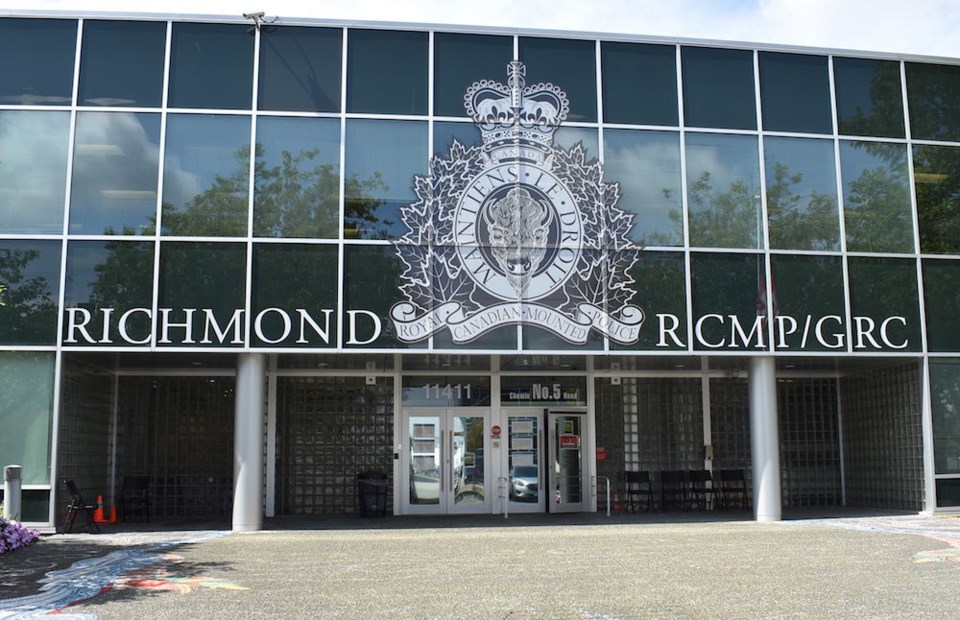A federal judge has found the Royal Canadian Mounted Police breached procedural fairness and engaged in a “circular argument” to justify its actions when it abruptly told a former intelligence officer it had revoked his Top Secret security clearance.
The apparent decision had a cascading effect on Peter Tait, who at the time was a municipal employee of the City of Richmond working under the direction of the RCMP, according to a May 27 ruling from Justice Negar Azmudeh.
Tait had first obtained a security clearance in 2006, and as an intelligence officer, his entire career was premised on holding that status, the judge said. Since 2007, he had mostly worked for the RCMP in a number of criminal intelligence analysis roles.
“The only break from his employment with the RCMP was between September 2018 and December 2019, when he worked for INTERPOL in Zimbabwe,” wrote Azmudeh.
Top Secret security clearance must be updated every five years. Tait was in the process of doing that after it expired in 2021. A year earlier, he had begun working as a criminal intelligence analyst supervisor at the Richmond RCMP detachment, the ruling says. The role meant Tait was employed by the city and provided to the municipal detachment as support staff.
On March 14, 2023, the RCMP manager of client services called Tait to a meeting, telling him the RCMP had informed the City of Richmond that they had revoked his security clearance. Tait then received a letter on City of Richmond letterhead that same day.
“As a result of an RCMP internal investigation, the RCMP have decided to revoke your Enhanced Security Clearance, you were informed of this decision at our meeting today,” it stated.
The letter went on telling Tait that his position with the city requires he maintain security clearance as a condition of employment, and that he should not report to his regular shift the next day. Tait was told that he had been placed on leave with pay pending an investigation.
RCMP's position changes in court
In court, the RCMP told a different story—instead of Tait having his Top Secret clearance revoked, it had been placed on “administrative cancellation.”
The same day Tait was told his security clearance had been revoked, Dave Chauhan, RCMP superintendent of the Richmond detachment, wrote in a letter saying the former intelligence officer “is no longer a suitable Municipal Employee here at our detachment” and that he was exercising his authority to “terminate his access to the Richmond RCMP Detachment.”
“I will be requesting an administrative cancellation of his security clearance, effective today,” Chauhan wrote.
Tait never learned of Chauhan’s letter until he took the RCMP to court and found it attached to an affidavit from Grant Pretchuck, RCMP risk reviewer with the Pacific Region Department Security.
Pretchuk also told the court that the information Tait received in the letter from the City of Richmond was incorrect. Tait’s security clearance was never revoked.

As the court proceedings went on, the position of the RCMP—alongside the attorney general of Canada and several other named defendants—evolved again. They ended up arguing that Tait’s security clearance had never been revoked and was never administratively cancelled. The letter contained an error, they claimed.
The RCMP claimed it “returned” Tait to the city when it decided he was no longer suitable to perform his duties. At that point, they “simply stopped updating his clearance, the renewal of which was pending since June 2021,” wrote Azmudah.
Two months after first hearing his security clearance had been revoked, Tait received a letter from the city confirming he had lost his job due to the RCMP cancelling his Top Secret status. Tait was given 60 days of unpaid leave to secure an alternate position with the city or face termination.
Intelligence officer claims he lost bid for new job due to security clearance uncertainty
Tait did not hear from the RCMP for about a month after he was first notified of his apparent security clearance revocation. That's when he contacted Chauhan, head of the Richmond detachment, and arranged to meet at a Tim Hortons.
At the meeting, Chauhan did not provide Tait with information around why he had lost his security clearance, what steps the RCMP had taken, or how he might be able to dispute it. The superintendent also told Tait he would get back to him with answers but never did, according to the court decision.
Meanwhile, Tait had been interviewed and selected for a role with the Criminal Intelligence Service of Canada (CISC), an inter-agency organization separate from the RCMP that co-ordinates and shares intelligence with law enforcement agencies across the country.
Tait proactivity told CISC that the RCMP had revoked his security clearance. He didn’t end up getting the job, something Tait believed was directly linked to uncertainty around his security clearance, he told the court.
On July 2, 2023, the City of Richmond terminated Tait. That’s when he took the matter to court.
Both sides argue over rules governing Top Secret security clearance
The federal case hinged on whether Tait had access to procedural fairness under the Treasury Board’s Standard on Security Screening—a document that applies to multiple department and agencies with the primary purpose of ensuring “security screening in the Government of Canada is effective, rigorous, consistent and fair.”
According to Azmudah, the standard has created a “sophisticated procedural fairness safeguard for revocation of security clearance that allows input from the affected individuals, as well as recourse, such as a right to appeal, for an unfavourable result.”
Obtaining Top Secret security clearance requires multiple steps and background checks. Some of those may include: verifying identity, background and credentials; financial and criminal record checks; an open-source inquiry; a security interview; a security assessment conducted by the Canadian Security Intelligence Service; and a polygraph examination.
In court, the RCMP argued that a security clearance is a privilege, not a right. When Tait was returned to the city, he no longer needed his security clearance and so the RCMP was entitled to simply stop updating it, they claimed.
The Standard states that revoking a security clearance must be communicated in writing and requires a duty of procedural fairness.

An administrative cancellation of a clearance is different, according to the RCMP’s Security Screening Guide: Mandatory Practices for Security Screening Practitioners.
The guide lists a number of examples that may warrant an administrative cancellation. They include an individual withdrawing a request for the clearance, voluntarily retiring or terminating a contract; or rescinding consent to maintain clearance.
The guide also directs RCMP decision-makers to document the reason for the administrative cancellation in the security file and open a path for the holder to have it reactivated within 12 months.
Tait claimed the RCMP’s actions in his case violated the Standard and failed to provide procedural fairness surrounding the apparent revocation of his security clearance.
Tait said the RCMP failed to:
- inform him of any concerns it had before revoking the security clearance;
- conduct a security interview before its decision;
- provide him with a chance to respond to concerns;
- directly communicate its decision in writing;
- provide information around why the force apparently revoked his security clearance;
- and inform him of his rights to resolve situation.
RCMP's logic builds 'circular argument' in breach of federal security clearance rules
In her decision, Azmudah slammed the RCMP’s logic in the case as offering “no procedural safeguards to anyone.”
By falling below the requirements set out in the Standard, the apparent decision to revoke Tait’s security clearance had a “serious impact” on his ability to pursue his career, “namely intelligence jobs,” added the federal judge.
When Tait contacted Chauhan to meet, the superintendent had a chance to clarify what had actually happened. But instead of a formal meeting, Chauhan took Tait to Tim Hortons and “provided no clarification,” wrote Azmudah in her decision.
More importantly, the judge added, there is nothing under the federal or RCMP protocols that provide the basis for an automatic loss of security clearance when employment ends.
As Azmudah put it: the RCMP engaged in “a circular argument used to justify their actions, where the clearance is both the cause and the effect of the employment termination.”
“The process relies solely on its own internal logic (i.e., clearance is needed to keep the job, and without it, termination occurs; then termination is used to justify the cancellation of the clearance) without offering an independent basis for the decision,” she added.
The judge quashed the RCMP’s apparent revocation of Tait’s security clearance and remitted it to the police force for re-determination under federal security protocols.
Azmudah wrote that the former intelligence officer is entitled to procedural fairness, regardless of the nature of the police force’s concerns.
The judge ordered the RCMP through the attorney general of Canada to pay Tait $4,800 in legal costs.
It's not clear if the case has been appealed. Spokespeople with the RCMP's Richmond detachment and B.C.-wide E Division Headquarters did not respond a request for comment by the time of publication.



